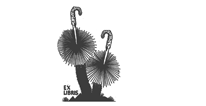Sir Paul Hasluck Books
The Office of Governor-General

The Quaile Memorial Lecture delivered in Adelaide on 24 October 1972 by Sir Paul Hasluck. Published by Melbourne University Press in 1979.
by Paul Hasluck
Publication Details:
Melbourne University Press, 1979
Paperback 47 pp
ISBN: 0 522 84187 2
Cover notes:
"Diplomatic Witness is the first-hand account of the author's experience as an officer of the Australian Department of External Affairs from 1941 to 1947. It reveals much of the background to war-time administration in Canberra and especially the international side of Australian post-war reconstruction and post-hostilities planning.
New light is thrown on the Australian - New Zealand Treaty of 1944, the San Francisco Conference on International Organisation and the early days of the United nations in London and New York.
The development of Australian thinking about defence and foreign affairs during the period is traced and one of the underlying themes is the relationship between minister and public servants in the formation of foreign policy.
The author's war-time duties brought him closely in touch with most of the notable political figures of the day both at home and abroad. Churchill, Eden, Ernest Bevin, Stettinius, Molotov, Gromyko, Trygve Lie, Smuts and other world figures are seen in action. On the Australian side the author observed at close quarters many of the war-time leaders and worked alongside some of the outstanding public servants of the day. He gives glimpses of men such as John Curtin, S.M. Bruce, Owen Dixon, Robert Garran and Frederick Shedden.
Naturally H.V. Evatt figures largely in the narrative. The author worked close to him in Australia and at several international conferences. The book gives a fascinating picture of Evatt at work and much material for a fuller study of Evatt's life and works in the evaluation of his place in Australian foreign policy.
The historian will need this book as a source study of Australian government, foreign policy and defence and the interpretation of official archives. The general reader will find in the lively personal narrative a revealing picture of conditions, public figures and events during and immediately after World War II."
